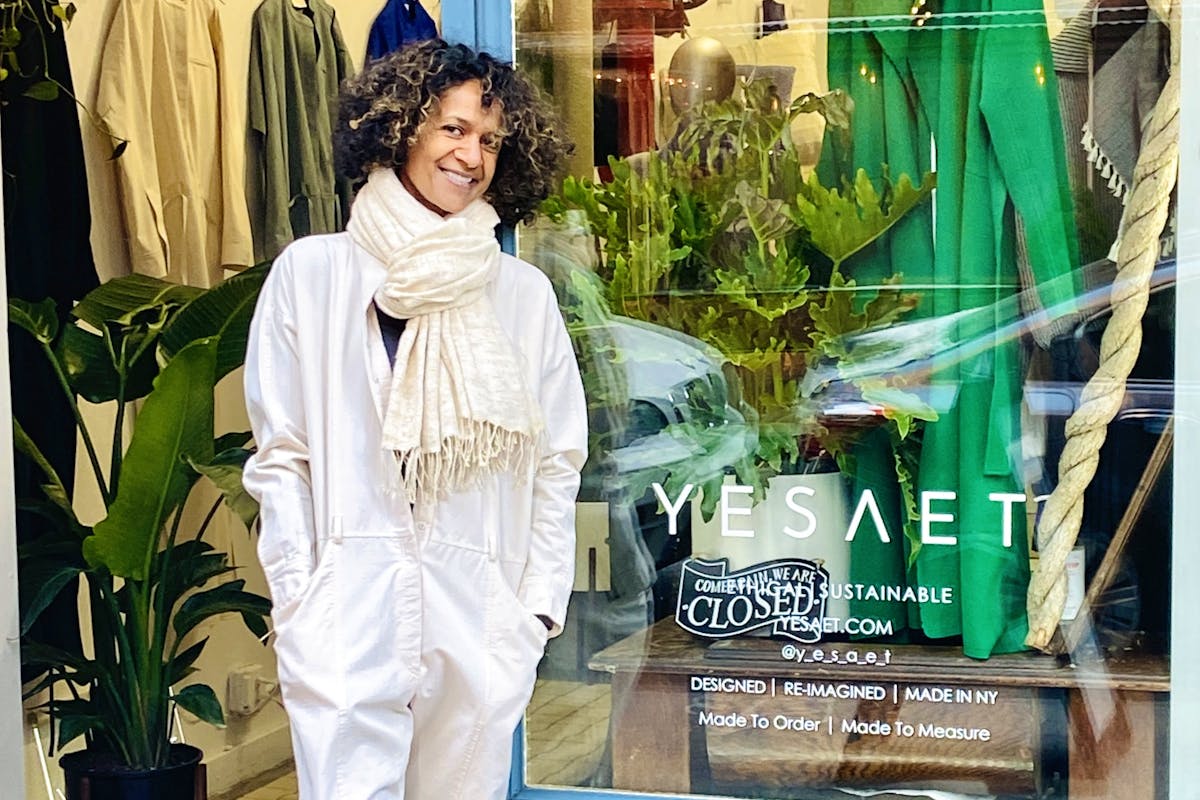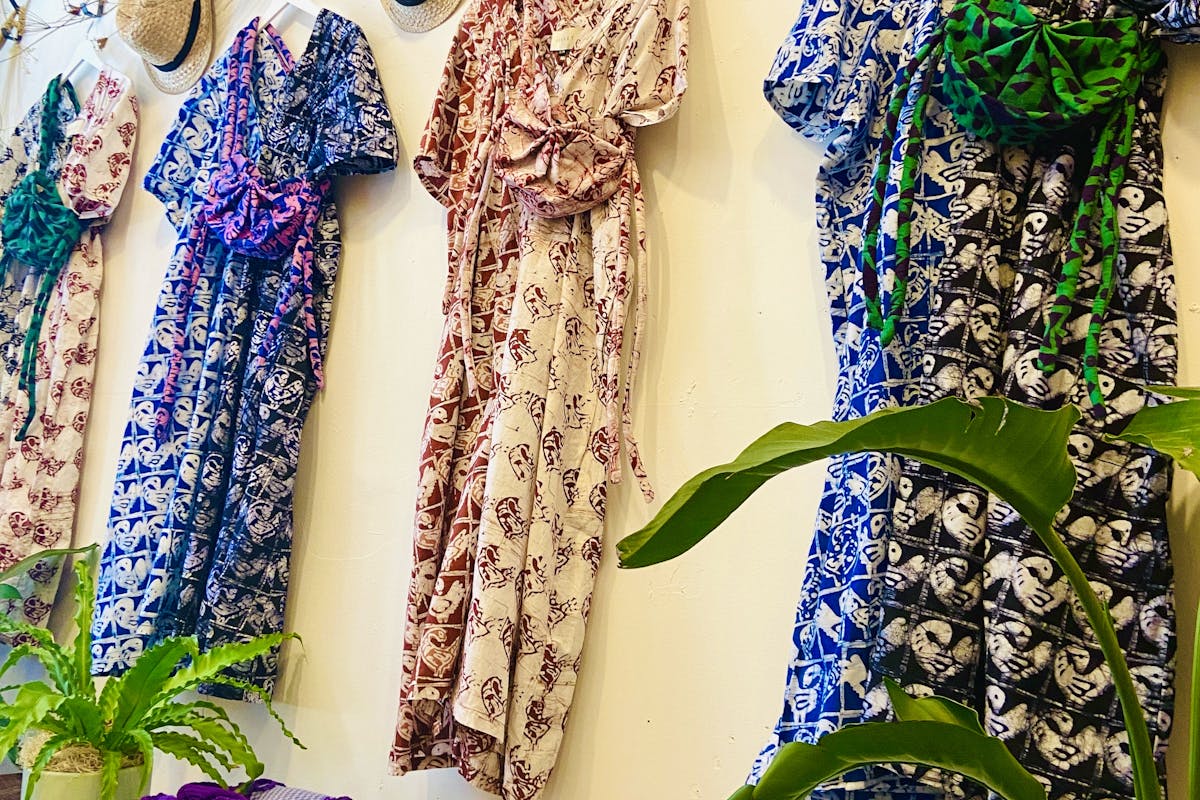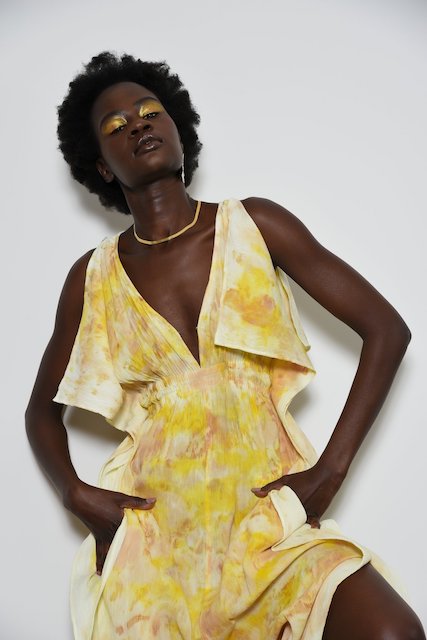
Sylma Cabrera, owner of Pure Soul boutique, will host a pop-up show this weekend featuring YESAET, sustainable fashions inspired by African heritage.
Stop in and meet YESAET creator, Hiywet Girma, to learn about her inspirational and unique line of made to order fashion. The designer — a Shelter Island homeowner —will be at Pure Soul (183 North Ferry Road) on Saturday, June 19 from 11 AM to 5 PM.
Hiywet will showcase garments featuring hand-loomed Ethiopian textiles that use botanical dyes from the food and floral waste contributed by Shelter Island women-owned businesses.
“In my 25-year career as a designer in New York, I saw first-hand the waste of resources that results from favoring the speed and never-ending cycle of fashion over the wellness of people and planet,” Hiywet says.
“As a designer and a mother, I knew that the only way forward is to create responsibly — fashion and purpose must come together,” she says. “Sustainability is no longer a choice.”
‘Women’s work’
Born in Ethiopia and raised in Côte d’Ivoire and the United Kingdom, Hiywet — who is known as Mimi and lives in Brooklyn with her husband and children — says a childhood surrounded by bountiful artisanal textiles and exquisite craftsmanship ignited her passion for textile innovation and fashion.
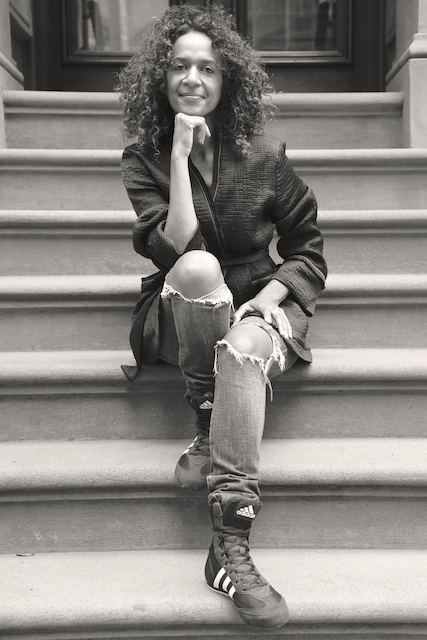
In her native language of Amharic, yeseat mean “a woman’s work” or “of a woman.” She says the brand’s sustainable practices and priorities are designed to capture and reflect women’s strength, focus and resilience.
“The beauty of African craft partnered with small local production ateliers is something I am proud to showcase through YESAET ,” Hiywet says on the company website, yesaet.com.
“We connect past, present and future towards a healthier world.”
The color process

Working with local women-owned businesses, including Maria’s Kitchen and Shelter Island Florist, Hiywet collects food and floral refuse and uses the natural dyes contained within the materials to transfer color.
Among the useful materials are onion skins, avocado pits, flower petals, trimmed leaves and stems, and more.
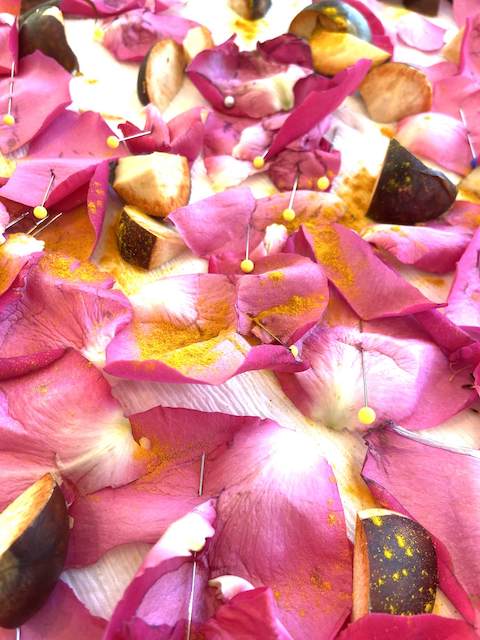
“Each has its own individual backstory,” Hiywet says.
The botanical colors are sustainably derived, harmlessly biodegradable, and non-toxic. Hiywet employs water-efficient dyeing methods and any remaining wastewater is non-toxic.
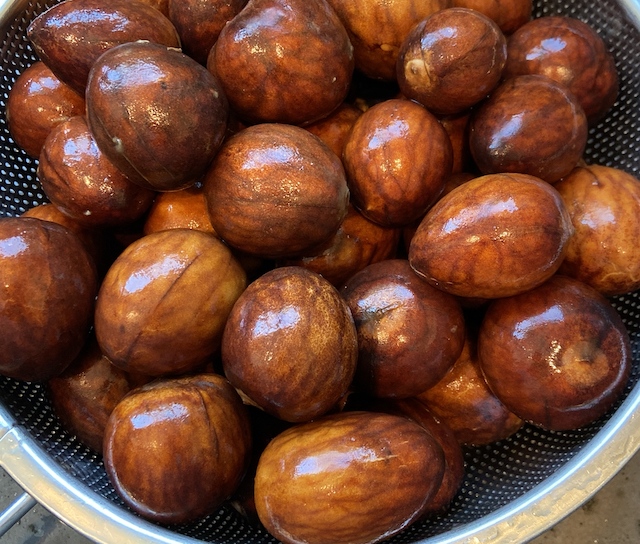
“These dyes can help transform the way we use colorants in everyday products and encourage the shift towards a more responsible system of production and consumption,” Hiywet says.
“We are proud to use botanical hand dyeing methods whenever possible.”
Sustainably produced garments
YESEAT garments include tops and sweaters, from featherweight cotton shells to up-cycled one-of-a-kind cashmere cardigans and pullovers; pants and jumpsuits; dresses and skirts; ultra comfortable loungewear; ponchos, jackets and sleeveless gilets; and beautiful scarves and other accessories.
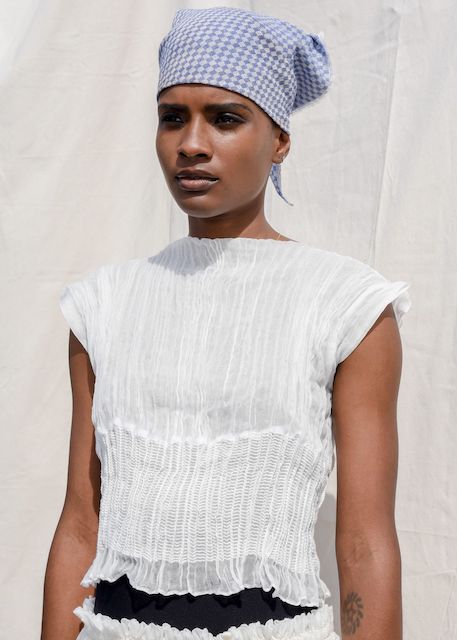
In another conscious step away from the assumptions of the apparel industry, the versatile designs in natural fabrics include some intended for all gender wear.
By supporting Ethiopian villagers — traditional spinners, weavers and artisans — Hiywet seeks to enable them to earn fair wages, send their children to school and to break cycles of poverty while highlighting the beauty and art of ancient crafts.
YESEAT’s made-to-order policy also means reduced waste. Garments are fitted with adjustments made to patterns in family-owned studios in New York City, supporting these small businesses and encouraging the continuation of skilled trades.
“By choosing YESAET, you are choosing to make a positive impact by shopping small, choosing sustainability, choosing to empower artisans and support the local economy,” Hiywet says. “This is slow fashion, with respect for craft and the environment.”
Don’t miss the pop-up
Drop by Pure Soul on Saturday, June 19 between 11 AM and 5 PM to meet Hiywet Girma and learn about and support her unique approach to sustainable clothing.

